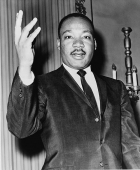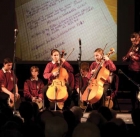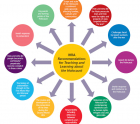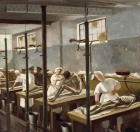Controversial issues
The legacy of the past and its impact on the present, as well as the process of interpretation by which accounts of the past are constructed, mean that many topics studied in history may carry an emotional charge. Certain events or developments may have a particular relevance – or resonance – for some young people and their communities, but carry different overtones (or none at all) for others. This section contains advice and resources for teachers who are tackling potentially sensitive topics that may generate emotionally charged responses and explores the issues that may arise as topics studied in the classroom intersect with personal, family and community histories. The materials here will help teachers to reflect carefully on the appropriateness of their objectives and to develop effective teaching strategies for promoting sensitive and productive kinds of discussion, especially when both the past and its implications for the present are disputed. They highlight the risks involved and the ways in which they can be mitigated, and include guidance and advice related to the Prevent Strategy.
-

Family stories and global (hi)stories
ArticleClick to view -

From The Holocaust To Recent Mass Murders And Refugees
ArticleClick to view -

From horror to history: teaching pupils to reflect on significance
ArticleClick to view -

Fundamental British Values and history teaching
ArticleClick to view -

Helping Year 9 debate the purposes of genocide education
ArticleClick to view -

Helping Year 9 evaluate explanations for the Holocaust
ArticleClick to view -

Helping Year 9 to engage effectively with ‘other genocides’
ArticleClick to view -

Hidden histories and heroism: post-14 course on multi-cultural Britain since 1945
ArticleClick to view -

Historical thinking and art education in Canada’s era of societal reckoning
ArticleClick to view -

History Teaching in Belarus: Between Europe and Russia
ArticleClick to view -

History, citizenship and controversy
ArticleClick to view -

History, music and law: commemorative cross-curricularity
ArticleClick to view -

How ‘good’ are Key Stage 3 textbooks in supporting the teaching of the Holocaust?
ArticleClick to view -

Integrating the historical Holocaust
ArticleClick to view -

International Journal 14.2: Editorial
ArticleClick to view -

International Journal 14.2: Editorial review
ArticleClick to view -

Is it time to forget Remembrance?
ArticleClick to view -

Learning from the Aftermath of the Holocaust
ArticleClick to view -

Learning lessons from genocides
ArticleClick to view -

Moral dilemmas: history teaching and the Holocaust
ArticleClick to view

